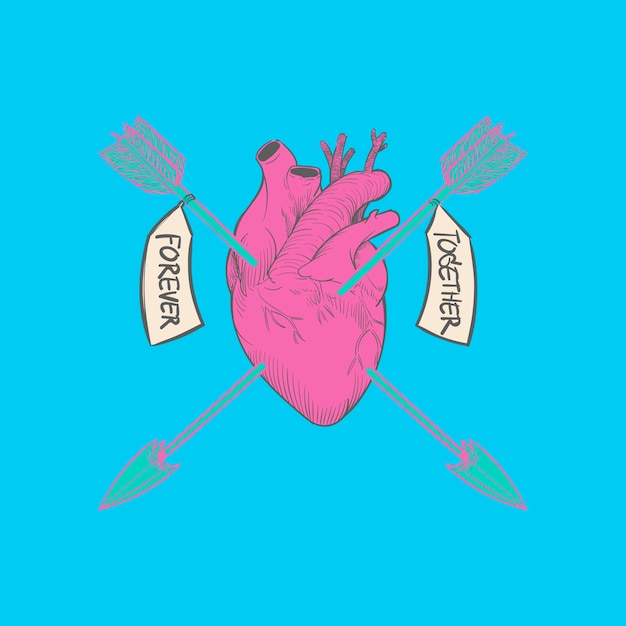

The human heart beats approximately 100,000 times a day.
The heart is about the size of a clenched fist.
The heart weighs about 11 ounces.
The heart is made up of four chambers: two atria and two ventricles.
The heart pumps about 2,000 gallons of blood every day.
The heart starts beating in the fetus around three weeks after conception.
The heart muscles are continuously working without rest.
Exercise strengthens the heart muscles, resulting in a healthier heart.
Research suggests that the heart can remember experiences and emotions.
The heart has its own electrical system to regulate the heartbeat.
Laughing is good for the heart as it increases blood flow and improves blood vessel function.
The sound of a heartbeat is created by the valves opening and closing.
The heart rests for about 0.4 seconds between beats.
The heart is the first organ to develop in the human body.
Heart disease is the leading cause of death worldwide.
A heart attack occurs when blood flow to the heart muscle is blocked.
The heart’s energy output can vary depending on the emotions a person experiences.
The heart pumps oxygenated blood to the body and deoxygenated blood to the lungs.
Heart rate is typically faster in women than in men.
A newborn baby’s heart beats faster than an adult’s heart.
Heart murmurs are abnormal sounds caused by the turbulent flow of blood.
The heart has its own natural pacemaker, called the sinoatrial node.
Regular exercise reduces the risk of heart disease.
The heart can beat even if it’s separated from the body, as long as it has an oxygen supply.
The heart is considered a symbol of love and affection.
Broken heart syndrome, also known as stress-induced cardiomyopathy, can occur after a traumatic event.
The heart’s pumping power is strongest in the morning.
The heart has its own intricate network of blood vessels called coronary arteries.
The heart sends signals to the brain that can affect emotions and cognition.
The heart has a unique pattern of ridges and bumps on its surface, like a fingerprint.
Heart rate variability is an indicator of heart health.
The heart beats faster when we’re nervous or excited due to the release of adrenaline.
Giving and receiving hugs can lower blood pressure and reduce stress, benefiting the heart.
The heart can pump blood through the entire circulatory system in about one minute.
The heart can continue to beat even if it’s removed from the body and supplied with oxygen.
The heart has its own specialized cells called pacemaker cells.
The heart can be transplanted from one person to another to save a life.
The heart can produce its own supply of cholesterol, which is essential for its functions.
The heart’s electrical signals can be measured with an electrocardiogram (ECG).
The heart doesn’t rest during sleep; it adjusts its pace to provide the necessary blood flow.
Red wine, when consumed in moderation, may have heart-healthy benefits.
The heart pumps approximately five quarts (or liters) of blood per minute.
A cold heart is a metaphor for someone who lacks compassion or empathy.
The heart is the center of the cardiovascular system, which includes blood vessels and blood.
The heart is an amazing organ, it works tirelessly to keep us alive.
Around the world, coffee enthusiasts enjoy Monin coffee concentrate since it is a multipurpose product. Conveniently combining…
The Importance of Choosing the Right Shower for Your Bathroom Renovating your bathroom can be…
Usain Bolt holds the record for the fastest 100-meter sprint in history.Bolt was named Sportsman…
Love is in the air... and it smells suspiciously like chocolate!Roses are red, violets are…
Life's a beach, take a picture and relax.Sun, sand, and salty kisses. That's what beach…
Hungary is home to the largest thermal water cave system in the world.The Rubik's Cube…